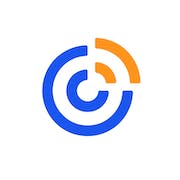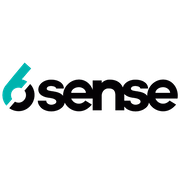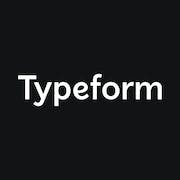Looking for the best lead generation software? Our comprehensive buyers guide shares tips on selecting the perfect solution with tools for generating high-quality leads and boosting sales. Check it out now!
Are you tired of outdated lead generation strategies that leave you with low-quality leads and wasted resources? The solution to your problem may lie in investing in a lead generation software. However, with a wide range of options on the market, finding the right one for your business can seem overwhelming. This guide will provide you with all the information you need to make an informed decision on the best one to meet your unique business needs. We've got you covered, so, let's dive in and find the perfect lead generation software for your business!
What is a lead generation software?
Lead generation software, also known as lead gen software, is a tool used by businesses to generate leads for their sales team. It automates the process of identifying and capturing potential customers, reducing the time and effort needed to find and engage with them. With the use of this solution businesses can streamline the sales process and increase their revenue.
Here are some common use cases for a lead generation tool:
- Identifying potential customers: This system can search online directories, social media platforms, and other sources to find potential customers that meet specific criteria, such as industry, location, or job title.
- Contacting potential customers: The software can automatically send out emails, messages, or cold calls to potential customers, saving sales teams time and effort.
- Lead qualification: The solution can provide qualified leads based on specific characteristics, such as their level of interest, their budget, or their timeline, helping sales teams prioritize their efforts.
- Lead management: The system can organize and track leads, ensuring they are followed up with in a timely and efficient manner.
Lead generation technology can be used by a wide variety of companies across many different industries. Here are some examples of the types of companies that use it:
- B2B companies: B2B companies particularly use this application, which often have long sales cycles and complex buying processes.
- SaaS companies: Many software-as-a-service (SaaS) companies use a lead solution to acquire new customers and grow their user base.
- Marketing agencies: Lead generation software can help marketing agencies generate leads for their clients, increasing the value of their services.
- Real estate companies: Real estate agents and brokers can use lead generation platforms to find potential buyers and sellers, helping them close more deals.
By automating the process of identifying and capturing potential customers, businesses can save time and effort, while also prioritizing their sales efforts.
What are the benefits of purchasing a lead generation system?
Every business owner understands the importance of lead generation. It's a process of capturing potential customers' interests and turning them into paying customers. But lead generation can be a daunting task, especially when you have a long list of potential customers to reach out to. This essential tool can help businesses generate more leads and sales without devoting endless hours to the process. Here are some of its main benefits:
- Saves time and effort: Instead of manually compiling and managing customer information, lead generation software automatically captures and organizes customer data, saving a tremendous amount of time and effort.
- Increases efficiency: By providing a centralized platform to manage leads, businesses can streamline their lead generation process, allowing them to be more efficient and productive.
- Improves lead quality: It allows you to target the right audience, resulting in more quality leads that are more likely to convert into paying customers.
- Provides valuable insights: With lead generation technology, businesses can gain valuable detailed insights into customer behavior and preferences. This data can then be used to tailor marketing campaigns or customer interactions, improving the chances of converting leads into sales.
- Enhances communication: This application provides a platform to manage and track customer interactions, ensuring that leads are not lost or missed, and that communication is consistent and effective.
Lead generation software has become a vital tool for businesses of all sizes. By incorporating lead generation software into their marketing strategy, businesses can increase their efficiency, improve lead quality, and ultimately drive more sales and revenue.
10 key features of lead generation software
This critical tool is suitable for any company looking to increase its customer base and generate leads. In fact, according to one GetApp survey, more than 57% of companies use one or more lead generation software. It comes with a range of features that make it easier to automate lead generation tasks, as well as tracking and managing new leads. Here are 10 common features found in most of them:
1. Lead capture forms:
These are customizable web forms that allow you to collect information from potential customers, such as name, email address, and other important details.
2. Landing pages:
These functions are standalone web pages that are designed specifically to convert visitors into leads by presenting them with an attractive offer.
3. Email integration:
This feature allows you to manage all your email campaigns from within the lead generation solution. You can create, send, and track email campaigns all in one place.
4. Lead scoring:
This tool allows you to prioritize leads based on their potential value to your business. You can assign scores to each lead based on the interactions they have with your website or other marketing assets.
5. Lead nurturing:
This tool provides an option of building relationships with prospective customers by providing them with valuable content and personalized communications.
6. CRM integration:
The feature allows you to integrate your lead generation program with your existing CRM software, allowing you to manage leads and customer data in one place.
7. Analytics and reporting:
These tools allow you to measure the effectiveness of your lead generation campaigns by tracking important metrics such as conversion rates, click-through rates, and more.
8. A/B testing:
This feature allows you to test different versions of your landing pages, emails, and other marketing assets to see which ones perform better.
9. Automated workflows:
These are predefined, automated workflows that allow you to streamline your lead generation process and save time on manual tasks.
10. Social media integration:
This allows you to connect with potential leads on social media platforms, such as LinkedIn, Facebook, and Twitter.
By incorporating these features into your lead generation strategy, you can increase your chances of success with lead generation and ultimately grow your business.
Considerations when investing in a lead generation program
Lead generation is the backbone of any successful marketing campaign. As such, the choice of lead generation software can make all the difference regarding the quality and quantity of leads generated. Research shows that 80% of marketers that use a lead gen tool drive increased leads. However, with a wide range options available on the market, choosing the right one can be an overwhelming task. This segment, will outline the critical factors that businesses should consider when making their purchasing decision.
- Firstly, businesses should consider the software's ability to gather valuable prospect information. This basic feature is a fundamental component of lead generation, and a lead gen system should shorten the time businesses spend compiling and processing data. Look for one that can help businesses capture information such as email addresses, phone numbers, and job titles.
- Secondly, the solution must have a user-friendly interface. Ease of use can make or break your lead generation operation. Complicated interfaces will discourage businesses from using the app, reducing the overall efficiency of lead generation. Choose one that is intuitive and straightforward to use, requiring little to no training.
- Thirdly, the qualityof the analytics must be considered. Analytics provide businesses with invaluable insights into the interactions and engagement of their leads. As a result, a lead generation program should come equipped with an effective analytics system. Businesses should also consider the accuracy of data and reporting frequency, among other factors, when assessing software analytics.
- Fourthly, businesses need to consider the scalability of the software. As businesses grow, their lead generation needs and requirements also grow. Therefore, it must be flexible enough to accommodate these changes. Look for one that is scalable and can be tailored to meet the changing needs of your business.
- Finally, consider the platform's value for money. Cost-effectiveness is a critical factor when purchasing lead generation software. Businesses should look for a tool that delivers value for money, ensuring that the system can meet their lead generation needs without breaking the bank.
The purchase of lead generation software is a vital decision for any business. By considering the factors outlined above, businesses can make an informed decision on the one that best suits their lead generation needs.
Market trends for lead generation software
Lead generation software trends are evolving rapidly, as businesses rely on more efficient ways of gathering valuable leads.
Trend #1
In 2024 and beyond, automated lead gen software is poised to become an essential tool for B2B businesses. Innovative technology includes AI-powered chatbots, data management tools for content curation, and personalized customer messaging services.
Trend #2
Another trend that is becoming increasingly popular is account-based marketing. This targeted approach enables companies to focus on a specific subset of high-value prospects, increasing the chances of effective lead generation.
Trend #3
Lead scoring and analytics tools are also essential in today's cutthroat marketing world. These tools continue to evolve with unprecedented processing power and real-time data insights, allowing for more accurate automated scoring.
Trend #4
Social media management tools are also becoming a must-have for businesses looking to improve their lead generation. As platforms like LinkedIn continue to gain traction as a B2B networking tool, businesses that embrace social media management tools can engage more effectively with potential prospects.
Trend #5
The use of video, podcasts, interactive landing pages, and other digital content is also gaining popularity in the lead generation space, as the focus shifts towards providing valuable and engaging content to prospects.
Looking ahead, automated lead gen technology is expected to become even more sophisticated, leading to increasingly smarter and more accurate data-driven insights. With CMOs embracing the latest trends in this area, businesses can look forward to a more efficient and effective lead generation environment in the years to come.
Conclusion
In conclusion, lead generation software is a critical asset for businesses aiming to optimize their sales processes, enhance customer engagement, and drive growth. Its ability to automate and streamline various aspects of lead management not only saves time and resources but also improves overall sales performance and revenue generation. As technology continues to evolve, these platforms will likely become even more sophisticated, offering more advanced features and integrations to meet the dynamic needs of modern businesses.








